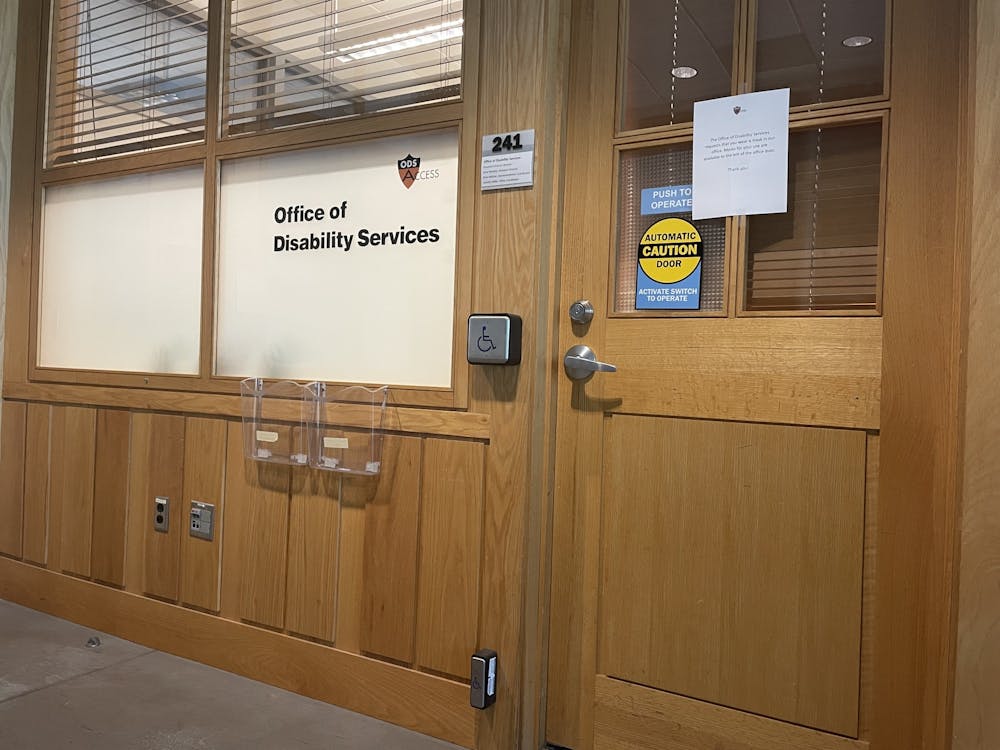The following is a guest contribution and reflects the author’s views alone. For information on how to submit a piece to the Opinion section, click here.
For disabled Princeton students like me, getting accommodations is a nightmare. Rather than being trusted as experts of our own lives and needs, we must pay hundreds or thousands of dollars for tests and evaluations, hope that our health care provider believes us, and then hand our diagnoses to the Office of Disability Services, which gets to decide whether our requests fit their idea of what disability accommodations look like.
Having gone through it myself, I find the process slow, expensive, anxiety-inducing, and patronizing. But historically, one thing made the process more tolerable: students who underwent the housing accommodations process could choose one person as their roommate. Housing ensured these two students were housed together, either in the same room, a suite, or Jack and Jill dorms with a shared bathroom.
However, this year, Housing and Real Estate Services quietly removed that option without alerting students, leaving them to discover it for themselves at the beginning of the brief pre-draw application window. The lack of consultation and the late reveal of this major change — both decisions that seem intended to prevent pushback — are inherently at odds with serving the disability community, ignoring our right to have a say in the rules made about our lives.
When I asked Housing why this policy changed, they vaguely explained that the decision was made for “procedural reasons” and “safety concerns.” But for what procedural reasons, and for exactly whose safety is Housing concerned? Living with disabled people isn’t a safety concern, because disabled people aren’t dangerous.
The frailty of these excuses raises the question of whether Housing changed this policy because supporting disabled students took more effort than they were willing to put forth.
If Housing is really concerned about the safety of disabled students, they should recognize the tangible detriments this change will have on disabled students’ wellbeing. Getting a random roommate increases the likelihood that the disabled person will be treated poorly or their needs will be ignored — for example, in Jack and Jills, having a roommate who understands the necessity of bathroom access is essential.
Indeed, one student who I talked to experienced their roommate locking them out repeatedly, although this student’s disability accommodations specifically involved bathroom access. With a self-selected roommate, their flare-ups were met with support and understanding that would be devastating to lose.
Being housed alone is not a good solution either. Placing disabled students in unwanted solitude cuts us off from our support networks, which has disastrous consequences for mental health. Although peers should not be made responsible for the entirety of another student’s health, having one’s support network immediately accessible is comforting to those experiencing psychological distress.
Separating students from their support networks also endangers their physical health. My first year, before I had developed an on-campus support network, I had a three-week-long autoimmune flare-up, leaving me in extreme pain and incredibly dizzy. I lived with the terrifying knowledge that I was alone in my dorm room with nobody to check on me.
Unable to even walk to the dining hall, I went multiple days without eating, simply because I had nobody to bring me food while my body destroyed itself. In contrast, during a similar flare-up last year, my support network brought me food and medicine and regularly checked on me. I rested more, healed faster, and returned to class sooner.
When I expressed concerns about this policy change to the Office of Disability Services, they suggested that disabled students tell their friends to “prioritize selecting a room near [them].” This recommendation is out of touch with the highly competitive reality of Princeton housing, which has significant disparities in accessibility, particularly for upperclass student housing. The newness of accessible dorms increases their popularity, making it less likely that friends of disabled students can room near their disabled friend.

Drawmates aren’t a special privilege. Students without disabilities can select up to seven drawmates with whom they are almost guaranteed to live, while disabled students have no say in our dorm: The “pre-draw” process assigns us a room. If that room doesn’t meet our accommodations, we must “either accept the assigned room or … participate in the regular room draw process.”
Denying the opportunity to room with your friends — a quintessential part of the college experience — on the basis of disability is unfair and discriminatory, and exacerbates the isolation of disabled students.
Many cornerstones of student life at Princeton are already harder for disabled students to access and enjoy. Dining halls are overstimulating and full of allergens. Eating club alcohol culture is unwelcoming of people with histories of addiction or certain health conditions. Health flares and inaccessible club locations limit extracurricular attendance.
Among all these limitations, roommates or suitemates promise disabled students regular social contact within their dorm rooms, spaces with guaranteed openness and accessibility.
Some disabled students need a single room, while others need a roommate. All would strongly benefit from retaining the agency to make roommate decisions for themselves, like every other student.
If Princeton is serious about their commitment to accessibility and upholding values of Diversity, Equity, and Inclusion, they should not subject disabled students to retrogressive housing policies. Instead, Princeton should continue building more accessible buildings and develop more opportunities for disabled students to build community.
August Roberts is a senior from Waco, Texas studying English and Gender & Sexuality Studies. You can reach them at ar1798[at]princeton.edu.








